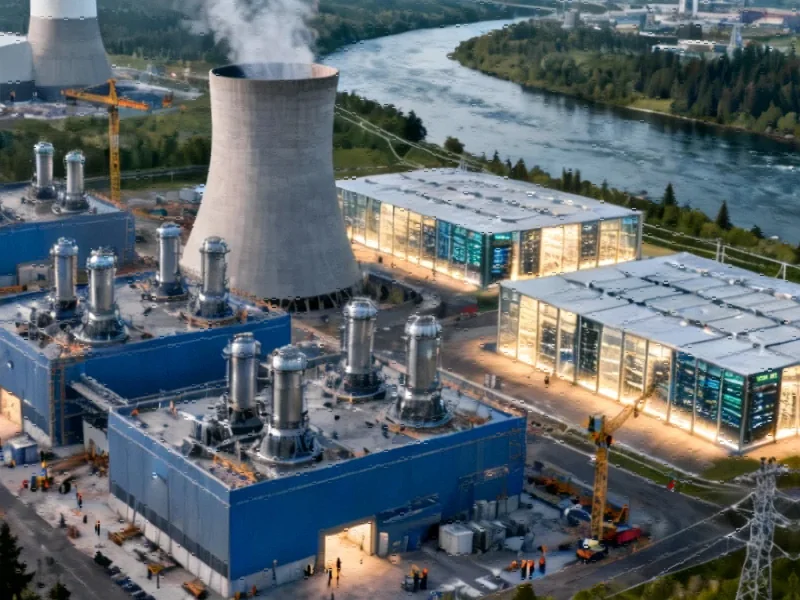The UK’s Ambitious Clean Energy Employment Initiative
The UK government has unveiled a groundbreaking strategy to create 400,000 new positions in the clean energy sector, marking one of the most significant employment initiatives in recent British history. Energy Secretary Miliband emphasized that this plan would establish “a new generation of good industrial jobs” throughout the nation, fundamentally reshaping regional economies and career opportunities.
“Our plans will help create an economy in which there is no need to leave your hometown just to find a decent job,” Miliband stated. “Thanks to this government’s commitment to clean energy, a generation of young people in our industrial heartlands can have well-paid, secure jobs, from plumbers to electricians and welders.”
Economic Implications and Industry Response
According to the Department for Energy Security and Net Zero (DESNZ), positions in the clean energy sector command average salaries exceeding £50,000—significantly higher than the UK average of £37,000. This wage premium reflects the specialized skills required and the strategic importance of these roles in the nation’s energy transition.
Work and Pensions Secretary Pat McFadden highlighted the comprehensive approach: “We’re giving workers the skills needed to switch to clean energy, which is good for them, good for industry, and will drive growth across the nation. Our new jobs plan will unlock real opportunities and ensure everyone has access to the training and support to secure the well-paid jobs that will power our country’s future.”
The announcement represents a significant shift in energy policy direction that could influence global approaches to workforce development in renewable sectors. Industry leaders have praised the strategy’s comprehensive nature, particularly its focus on both new entrants and existing workers seeking transition opportunities.
Skills Development and Workforce Transformation
Christina McAnea, general secretary of Unison, noted that the government’s approach could “help create a UK workforce with highly skilled, fairly paid and secure jobs.” She added, “Additional funding for apprenticeships and opportunities for young people are crucial too if the UK is to have a bright and clean energy future.”
Dhara Vyas of Energy UK commented: “Today’s announcement is a critical step forward in building the workforce required to deliver our future energy system. It rightly recognises the need to tackle the skills challenge collectively by investing in both new talent and our existing workforce.”
The strategy addresses a crucial gap in the renewable energy ecosystem—developing domestic capabilities rather than relying on imported expertise. This approach mirrors similar workforce development initiatives seen in other advanced economies transitioning to clean energy systems.
Political Debate and Economic Considerations
Despite widespread support from industry and labor groups, the plan has faced criticism from opposition figures. Shadow Energy Secretary Claire Coutinho raised concerns about the economic impact of current net zero policies, telling the BBC that the 2050 target was “making electricity really expensive.”
“You need to look at the whole of the economy,” Coutinho argued. “We’re losing thousands of jobs in the North Sea, we’re losing thousands of jobs in industry. We have the most expensive electricity in the world and we have to bring that down.”
This debate reflects broader global discussions about balancing environmental goals with economic stability, including how trade policies affect domestic industries during energy transitions.
Implementation Challenges and Opportunities
The success of this ambitious employment initiative depends on several critical factors:
- Training infrastructure: Scaling up vocational programs and apprenticeship opportunities
- Regional distribution: Ensuring job creation reaches industrial heartlands as promised
- Industry coordination: Aligning private sector investment with government initiatives
- Technology adoption: Integrating emerging solutions to enhance workforce productivity
As the UK moves forward with this comprehensive jobs plan, it joins other nations grappling with similar workforce transitions. The effectiveness of these programs will be closely watched internationally, particularly as countries seek to balance environmental goals with economic opportunity. Recent technology innovations in other sectors demonstrate how digital tools can support large-scale workforce transformations.
Meanwhile, the regulatory landscape continues to evolve, with increased governmental oversight becoming more common in environmental and energy policy implementation worldwide.
Long-term Economic Impact
Beyond immediate employment figures, the clean energy jobs initiative represents a fundamental restructuring of the UK’s industrial base. By creating high-wage positions in growth sectors, the government aims to reverse decades of regional economic disparity while positioning the country as a leader in renewable energy technology and implementation.
The success of this transition will depend not only on government policy but on collaboration between educational institutions, private industry, and local communities. If effectively implemented, it could establish a new model for how industrialized nations can simultaneously address climate change, economic development, and social equity.
This article aggregates information from publicly available sources. All trademarks and copyrights belong to their respective owners.
Note: Featured image is for illustrative purposes only and does not represent any specific product, service, or entity mentioned in this article.



